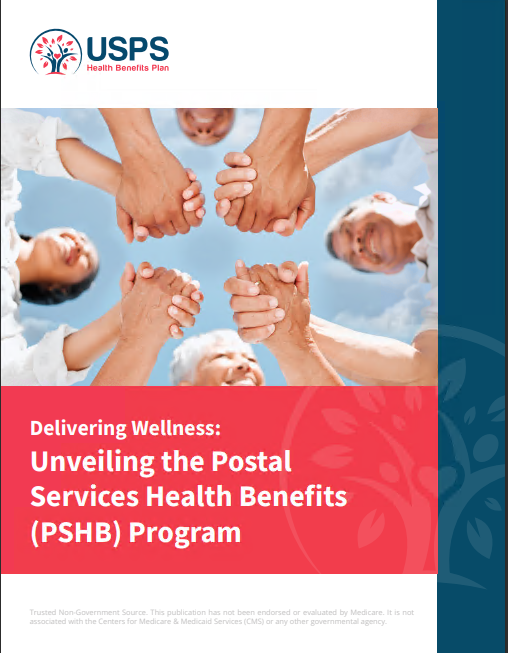Key Takeaways:
- Immunizations play a crucial role in safeguarding children’s health and are often covered under Postal Health Service benefits.
- Understanding eligibility, required documentation, and how to access these services ensures children receive necessary vaccinations.
Immunizations for Kids: Covered by Postal Health Service Benefits or Not?
Immunizations are an essential component of preventive healthcare for children, protecting them from various infectious diseases. For postal employees, ensuring that their children receive necessary vaccinations is a priority. This guide explores whether immunizations for kids are covered by Postal Health Service benefits, detailing eligibility criteria, required documentation, and how to access these services.
Overview of Immunization Coverage with Postal Health Service Benefits
The Postal Health Service provides comprehensive health benefits that typically include immunizations for dependent children. These benefits are designed to ensure children receive the necessary vaccinations to protect against various diseases, thereby promoting overall public health and individual wellness.
What Immunizations Are?
Immunizations involve administering vaccines to stimulate the immune system to protect against specific infectious diseases. These vaccines are essential in preventing outbreaks and ensuring community health.
Importance of Coverage
Ensuring that immunizations are covered under health benefits is crucial. It reduces the financial burden on families and promotes timely vaccinations, which are vital for preventing disease spread.
Understanding Immunization Schedules for Children
A well-structured immunization schedule is critical for the effective prevention of diseases. These schedules are typically recommended by health authorities and vary slightly depending on the region.
Recommended Immunizations
Commonly recommended immunizations for children include:
- Hepatitis B
- Diphtheria, Tetanus, and Pertussis (DTaP)
- Haemophilus Influenzae Type B (Hib)
- Polio (IPV)
- Measles, Mumps, and Rubella (MMR)
- Varicella (Chickenpox)
- Hepatitis A
- Human Papillomavirus (HPV)
Timing and Dosages
The timing and dosages of these vaccines are critical. For example, the MMR vaccine is typically administered in two doses, the first at 12-15 months and the second at 4-6 years. Adhering to these schedules ensures maximum effectiveness and protection.
Eligibility for Immunization Coverage under Postal Health Service Benefits
Understanding eligibility criteria for immunization coverage is essential to ensure your children receive these critical vaccines.
Dependent Children
Coverage typically extends to dependent children from birth to 18 years old. This includes biological children, adopted children, and stepchildren.
Special Circumstances
In some cases, children under legal guardianship or those placed in your care through a court order may also be eligible. Providing the necessary legal documents to prove guardianship or custodianship is crucial in these situations.
Full-Time Student Status
For children over 18, being a full-time student can extend their eligibility up to 26 years. Proof of enrollment in an accredited institution is required.
Required Documentation for Immunization Coverage
Gathering the correct documentation is a crucial part of ensuring your children are covered for immunizations. Here’s what you might need:
Proof of Employment
Your status as a postal employee must be verified through recent pay stubs, an employment verification letter, or another official document.
Dependent Verification
Documents proving your relationship to the dependent are required, such as:
- Birth Certificates: For biological children.
- Adoption Certificates: For adopted children.
- Marriage Certificates: For stepchildren.
- Court Orders: For children under legal guardianship.
Student Verification
For children over 18 who are full-time students, provide a student ID or an official letter from the educational institution.
Enrollment Forms
Complete all necessary enrollment forms accurately to avoid delays.
How to Access Immunization Services through Postal Health Service
Accessing immunization services through Postal Health Service benefits involves several steps to ensure your children receive their vaccines promptly and efficiently.
Scheduling Appointments
Once your children are enrolled, schedule appointments for their immunizations. Many postal health plans offer a network of providers where you can book these services.
Provider Network
Ensure you choose a provider within the Postal Health Service network to avoid additional out-of-pocket costs. You can usually find a list of covered providers on the health plan‘s website.
Utilizing Preventive Services
Take full advantage of preventive services. Immunizations are often part of a broader preventive care visit, which can include a general health check-up and other necessary screenings.
Record Keeping
Keep accurate records of your child’s immunizations. This helps ensure they are up-to-date and makes it easier to manage future vaccinations.
Commonly Covered Immunizations for Kids
The Postal Health Service typically covers a wide range of immunizations that are crucial for children’s health.
Essential Vaccines
- Hepatitis B: Protects against liver infection.
- DTaP: Prevents diphtheria, tetanus, and pertussis.
- Hib: Guards against Haemophilus influenzae type b infections.
- Polio: Protects against poliovirus.
- MMR: Prevents measles, mumps, and rubella.
- Varicella: Protects against chickenpox.
- Hepatitis A: Prevents liver infection.
- HPV: Protects against human papillomavirus, which can lead to cervical cancer.
Additional Vaccines
Other vaccines may also be covered depending on specific health needs and recommendations by healthcare providers.
Benefits of Immunizations for Your Child’s Health
Immunizations offer numerous benefits, not only for the individual child but also for public health.
Disease Prevention
Vaccines are one of the most effective tools in preventing infectious diseases. They protect against potentially severe illnesses that can lead to complications or death.
Community Immunity
When a significant portion of the population is immunized, it helps prevent the spread of infectious diseases, protecting those who cannot be vaccinated, such as infants or individuals with certain health conditions.
Long-Term Health
By preventing diseases, immunizations contribute to long-term health and well-being. Children who receive all recommended vaccines are less likely to suffer from long-term health complications.
Educational Benefits
Healthy children are better able to attend school and perform academically. Immunizations prevent illnesses that could result in missed school days and learning disruptions.
What to Do If Your Child’s Immunizations Are Not Covered
While Postal Health Service benefits typically cover immunizations, there may be instances where specific vaccines or circumstances are not covered.
Review Your Plan
First, review your health plan’s details to understand the specific coverage. This information can usually be found in your benefits guide or by contacting customer service.
Seek Assistance
If you find that certain immunizations are not covered, seek assistance from your healthcare provider. They can often recommend alternatives or provide guidance on accessing necessary vaccines.
Explore Additional Resources
Look into public health programs or community resources that offer free or low-cost immunizations. Many local health departments provide these services to ensure all children are vaccinated.
Appeal Decisions
If you believe an immunization should be covered, you can file an appeal with your health plan. Provide all necessary documentation and a detailed explanation of why the coverage is needed.
Preventive Care Focus
Emphasize the importance of preventive care in discussions with your health plan. Highlighting the long-term cost savings and health benefits of immunizations can sometimes lead to reconsideration of coverage decisions.
Conclusion
Immunizations are a crucial aspect of preventive healthcare for children, and the Postal Health Service benefits generally cover these essential services. By understanding eligibility criteria, required documentation, and how to access these services, parents can ensure their children receive necessary vaccinations. If certain immunizations are not covered, exploring additional resources and advocating for coverage can help secure the best possible health outcomes for your children. Staying proactive and informed about your health benefits ensures comprehensive protection against various infectious diseases, promoting overall wellness and long-term health for your family.
Contact Information:
Email: [email protected]
Phone: 6235552345











